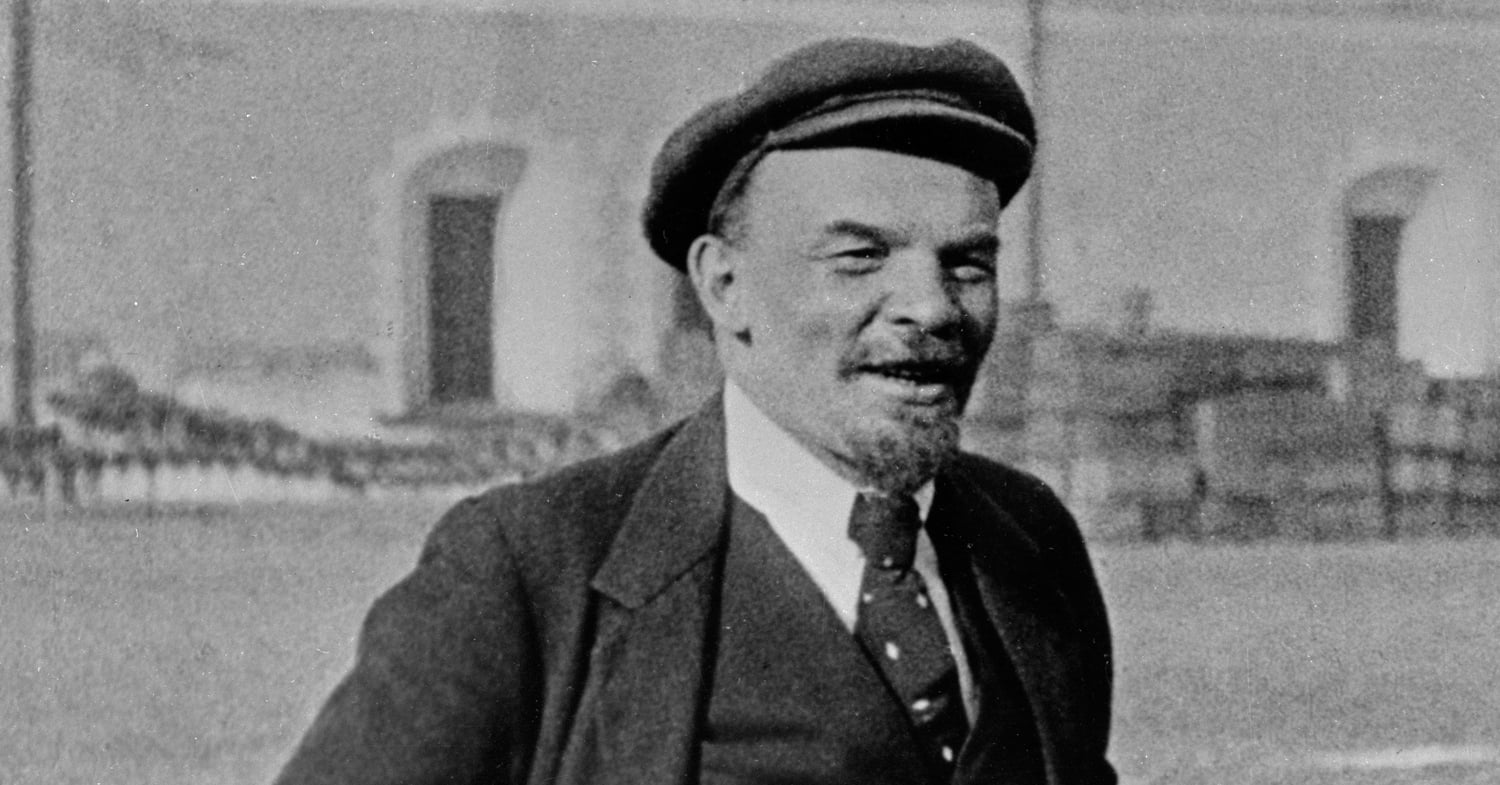The Soviet leader left behind not only a huge collection of works, but also many expressions that have passed on to the people. We selected several of them and checked whether they really belong to Lenin.
“Any cook can rule the state”
The phrase that even a woman without special training can (in other versions must) rule the state is attributed not only to Lenin, but also to Trotsky. In 2009, ex-president Leonid Kuchma mentioned “Leninist slogan”, reflecting on the crisis in the public administration system of Ukraine. Allegedly, ordinary users also use Lenin’s quote "Live Journal", And historians at a meeting at the Ural State Pedagogical University.
We were unable to find this phrase in Lenin’s writings either with the verb “can” or with the verb “should”. In 1917, the magazine "Prosveshchenie" published published article “Will the Bolsheviks retain state power.” In it, the leader of the revolution writes: “We know that any laborer and any cook are not capable of immediately entering into government. On this we agree with the cadets, and with Breshkovskaya, and with Tsereteli. But we differ from these citizens in that we demand an immediate break with the prejudice that only the rich or officials taken from rich families are able to govern the state, carry out the everyday, daily work of government. We demand that training in public administration be conducted by class-conscious workers and soldiers and that it begin immediately, that is, all working people, all the poor, immediately begin to be involved in this training.”
Apparently, over time, Lenin’s extended phrase was transformed into, as Kuchma called it, a slogan. Moreover, this happened quite quickly - already in 1925 it appeared poster with the words “Every cook must learn govern the state" and the signature "Lenin". In 1933, these very words attributed to the Bolshevik leader Trotsky in the article “Alarm Signal”. Subsequently, the verb “to learn” disappeared from this formulation.

Mostly not true
"Study, study and study"
The call for lifelong education reached not only Soviet schools icons and banners, but also became a “hero” jokes. This phrase is also used by the authors of the Russian version Deutsche Welle, and users "Odnoklassniki".
In 1899 Lenin wrote article "The Retrograde Direction in Russian Social Democracy." In this work there is the following fragment: “At a time when educated society is losing interest in honest, illegal literature, a passionate desire for knowledge and for socialism is growing among the workers, real heroes stand out among the workers who - despite the ugly conditions of their lives, despite the stultifying hard labor in the factory - find in themselves so much character and willpower to study, study and study and develop themselves into conscious social democrats, "working intelligentsia" Subsequently, Lenin used similar phrases in report at the IV Congress of the Comintern in 1922 and in article “Less is better,” 1923. This quote is also in its time appeared on Soviet posters.
At the same time, at least very similar, and at most identical formulations are found in earlier sources. For example, Anton Chekhov wrote in the story “My Life” (1896): “We need to study, study and study, but let’s wait with deep social trends: we have not yet grown up to them and, in all conscience, we do not understand anything about them.”

Mostly true
"We'll take a different route"
Vladimir Ulyanov allegedly said this phrase to his mother, who was mourning the execution of his eldest son Alexander - in 1887 hanged for participation in a conspiracy against Alexander III. In 1951, the words "We'll Go Another Way" became the title paintings Petra Belousov, depicting the future leader of the Bolsheviks with his grieving mother. Some users, for example, are sure that at that moment Lenin spoke precisely these words to her "Live Journal".
We were unable to find this phrase among Lenin’s written heritage. The closest statement of the revolutionary is given by his sister Anna Ilyinichna in the small book “Ilyich’s Childhood and School Years.” She writes: “Volodya experienced the misfortune with great firmness, continued to study carefully, but became more serious and silent. He often thought about whether his elder brother had chosen the right path of struggle, and said: “No, we will go the wrong way. This is not the way we should go.”
Anna Ulyanova's book was published in 1935 - almost half a century after the events described. Therefore, there is every reason to doubt the reliability of these memories. We were unable to find any other recollections of contemporaries about this phrase. But back in 1925, very similar words invested into the mouth of the leader Vladimir Mayakovsky in his poem “Vladimir Ilyich Lenin”:
And then
said
Ilyich, seventeen years old -
this word
stronger than vows
soldier with raised hand:
- Brother,
we are here
ready to replace you,
we will win
but we
Let's take a different path!
This is not accurate
“In fact, it’s not a brain, it’s shit”
The phrase addressed to the intelligentsia, which is attributed to Lenin, can be found in one form or another on websites with quotes, in user texts "Live Journal" And "VKontakte". In 2012, with reference to Lenin, director Stanislav Govorukhin explained, why the winner of the presidential election should not rely on “all sorts of liberal writers, Booker winners, authors of these books that are impossible to read.”
We can say with a high degree of confidence that Lenin actually stated this. A similar phrase appears in letter to Maxim Gorky, which was included in the complete collection of the leader’s works. At the same time, the reduction of Lenin’s words to slogans, which is usual in the case of his other phrases, also occurs here. Lenin informed Gorky that he was dissatisfied with the pamphlet of the writer Vladimir Korolenko, and noted: “What a vile, vile, vile defense of the imperialist war, covered with sugary phrases! A pathetic bourgeois, captivated by bourgeois prejudices! For such gentlemen, 10 million killed in the imperialist war is a cause that deserves support (in deeds, with sugary phrases “against” the war), and the death of hundreds of thousands in a just civil war against landowners and capitalists causes gasps, groans, sighs, and hysterics. No. It’s not a sin for such “talents” to spend a week in prison if this needs to be done to prevent conspiracies (like Krasnaya Gorka) and the death of tens of thousands. And we discovered these conspiracies of the cadets and “near-cadets”. And we know that professors around the cadets often give help to the conspirators. This is a fact. The intellectual forces of the workers and peasants are growing and strengthening in the struggle to overthrow the bourgeoisie and its accomplices, intellectuals, lackeys of capital, who imagine themselves to be the brains of the nation. In fact, it’s not a brain, it’s shit.”

Is it true
“Of all the arts, cinema is the most important for us”
Lenin allegedly said words about cinema hit on Soviet posters back in 1925. When talking about film festivals or thematic exhibitions, some people still use this quote today - for example, administration one of the districts of St. Petersburg. One can often find a version of this statement in which the circus is recognized as “the most important of the arts,” along with cinema (and while “the people are illiterate”). This opinion was attributed to Lenin, for example, by journalists Vladimir Kara-Murza Sr. And Svetlana Kuznetsova.
We were unable to find a similar phrase about the exclusivity of cinema in Lenin’s own texts. The fact that the leader of the revolution pronounced it in 1922 in a private conversation was reported by the first People's Commissar of Education, Anatoly Lunacharsky. In 1925, with reference to a letter from Lunacharsky, this phrase brought in the book “Lenin and Cinema” by Grigory Boltyansky. The letter itself was published in 1933, and in 1970 excerpts from it appeared in the fifth edition of Lenin's complete works. He allegedly told Lunacharsky: “As you get back on your feet thanks to proper management, and perhaps, with the general improvement of the country’s situation, you receive a certain loan for this business, you will have to expand production more widely, and especially promote healthy cinema to the masses in the city, and even more so in the countryside... You must firmly remember that of all the arts, cinema is the most important for us.” Thus, the connection of this phrase with Lenin is based solely on Lunacharsky’s memories, so it is impossible to reliably confirm its authorship. At the same time, the addition about the circus does not find any confirmation at all.

This is not accurate
If you find a spelling or grammatical error, please let us know by highlighting the error text and clicking Ctrl+Enter.






